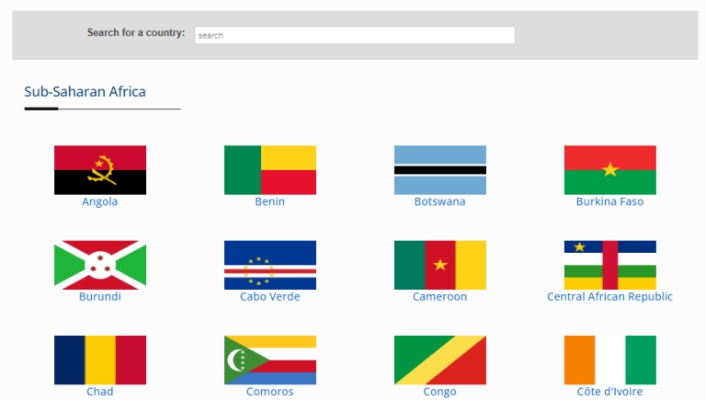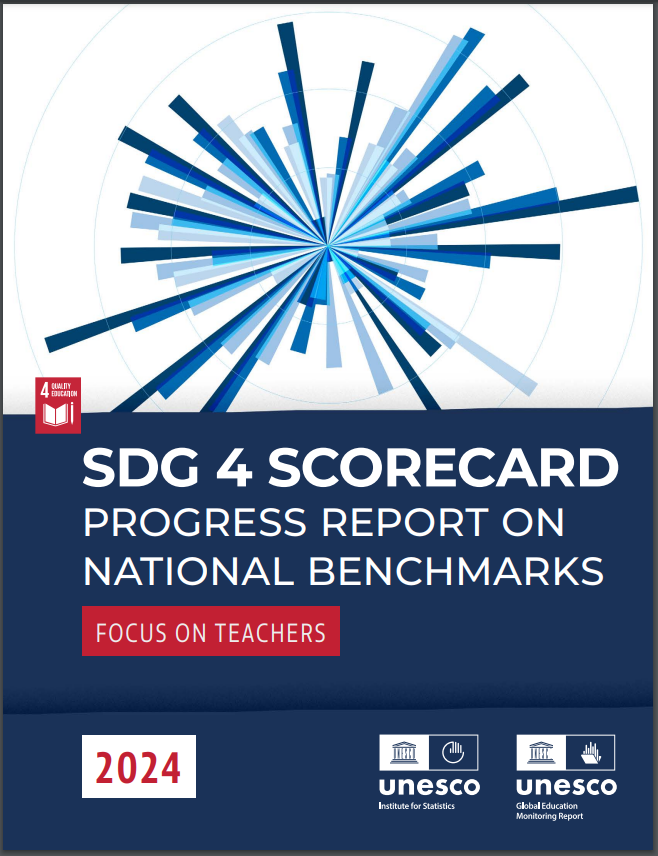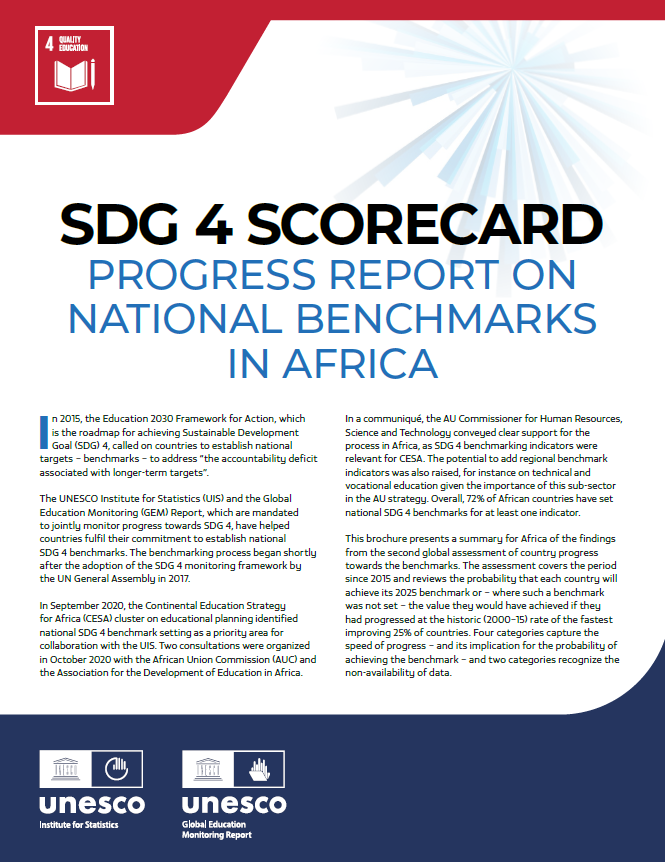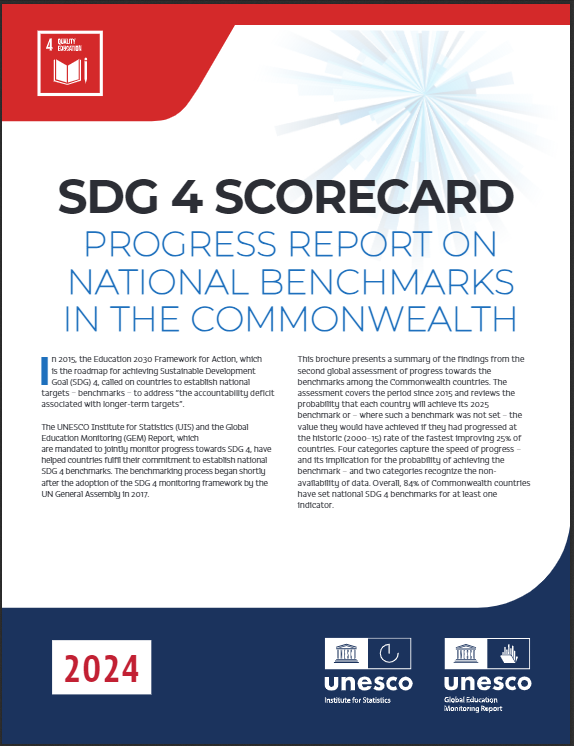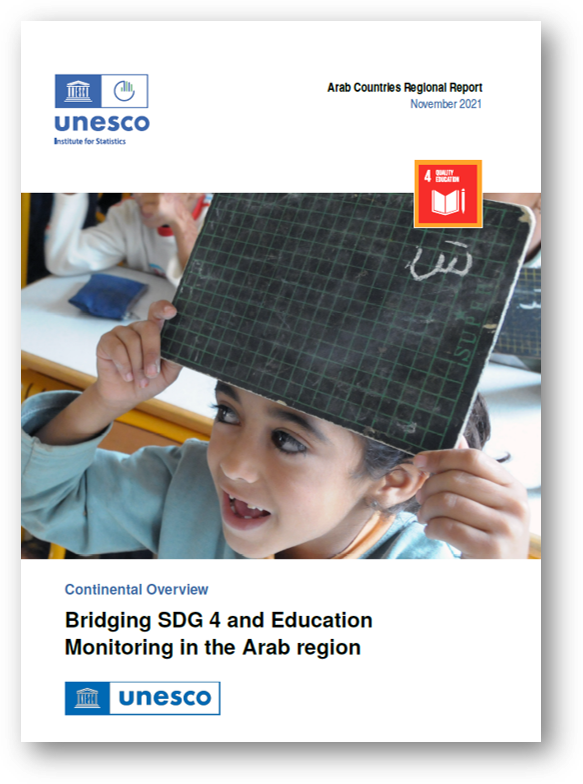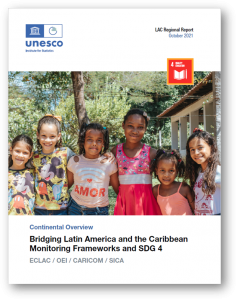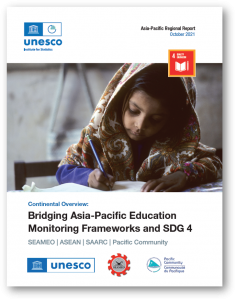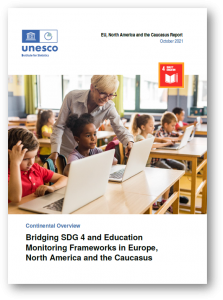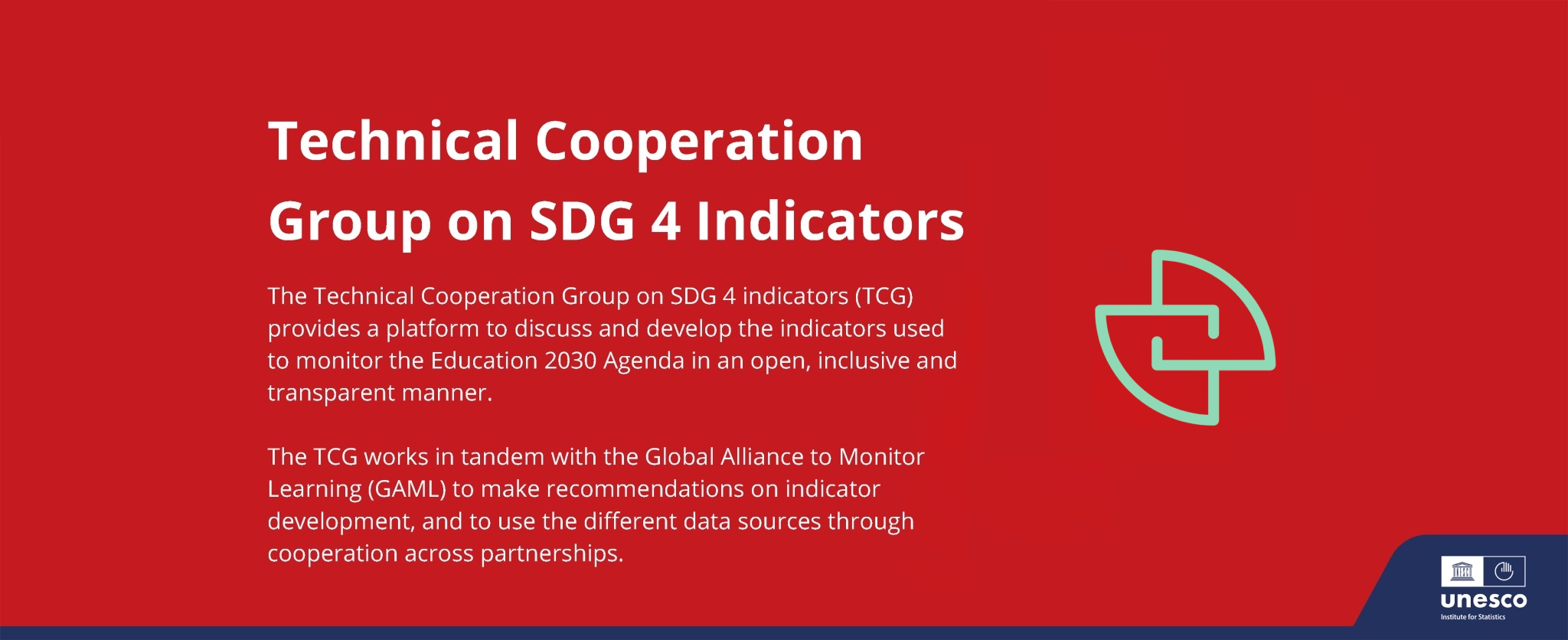
TCG meeting
- TCG members met in Paris on 6 February 2024 for an update on the TCG10 consultation, membership rotation, and preparations for the Conference on Education Data and Statistics(EDS Conference) (Paris, 7-9 February 2024). For more information, refer to the Meeting’s concept note and presentation.
- The EDS Conference decisions included:
- TCG will be renamed ‘Education Data and Statistics Commission’ (EDS Commission)
- TCG will remain the primary body for the coordination of the global education data and statistics
- TCG will take forward the recommendations of the EDS Conference between sessions.
- The TCG met again on 29 April 2024 to discuss working groups, task forces and workplans for the period 2024-2026.
For more information: TCG Terms of Reference and new TCG composition
Technical Advisory Group on SDG indicator 4.1.1
- The UIS convened a TAG of experts to refine the eligibility criteria that assessments should meet for reporting on SDG 4.1.1, with emphasis on SDG 4.1.1.a (early grades) given its recent downgrade from Tier I to Tier II during the IAEG/SDG meeting in October 2023.
- The first TAG meeting (4-6 March) reviewed the Criteria for Eligibility for reporting:
- alignment/validity;
- item content/quality;
- sample representativeness/rigor;
- assessment administration;
- data custodianship, reliability, and linking to the MPL.
- The second TAG meeting (14-16 May 2024) reviewed the evidence from the analysis of existing databases and discussed benchmark-setting.
For more information: SDG 4.1.1a tab in the 10th TCG meeting page
The UNESCO Institute for Statistics produced SDG4 country profiles including the diagram of the national education system, school age population by education level, available data and trends for education indicators from 2010 to 2022, and national benchmarks for 2025 and 2030.
Click here to download country profiles.
These country profiles may also be downloaded in the SDG4 Data Browser.
SDG 4 Scorecard progress report on national benchmarks: focus on teachers
The SDG 4 Scorecard shows countries’ efforts towards achieving their 2025 and 2030 national benchmarks, which represent their intended contributions to the achievement of SDG 4. Progress towards national targets is insufficient: countries are making good progress in Internet connectivity at school and teacher qualifications, but progress on the 6 other benchmark indicators is not on course.
SDG 4 Scorecard progress report on national benchmarks in Africa…
The SDG 4 Scorecard for Africa is a summary of the findings from the 2nd global assessment of country progress towards benchmarks since 2015. Overall, 72% of African countries have set national SDG 4 benchmarks for at least one indicator.
SDG 4 Scorecard progress report on national benchmarks in the Commonwealth
This brochure presents a summary of the findings from the second global assessment of progress towards the benchmarks among the Commonwealth countries since 2015. Overall, 84% of Commonwealth countries have set national SDG 4 benchmarks for at least one indicator.
Download the Commonwealth scorecard English
Education Finance Watch
The Education Finance Watch (EFW ) is a collaborative effort between the World Bank (WB), the Global Education Monitoring (GEM) Report, and the UNESCO Institute for Statistics (UIS). The EFW aims to provide an analysis of trends, patterns, and issues in education financing around the world using various sources of education, economic, and financial data from the WB, UIS, the International Monetary Fund (IMF), and the Organisation for Economic Co-operation and Development (OECD).
The Education Finance Watch (EFW) 2023 updates analyses on trends and patterns of education spending for the past 10 years, up to 2021, the second fiscal year after COVID-19. As a special theme of this year’s volume, the EFW2023 sheds light on changes in the school-age population and projects its fiscal implications for the upcoming ten years for selected countries.
Download the EFW2023.
This year, the special edition of EFW2023 extracts its findings on Africa, marking the declaration of 2024 as the African Union (AU) Year of Education and aiming to provide information to ministers of finance and education. Where possible, the data are disaggregated by each Regional Economic Community (REC) and by each AU regional group.
Download the special edition of EFW2023
Bridging the Global SDG 4 Framework with Regional Frameworks
The UNESCO Institute for Statistics published a series of regional reports to bridge the global SDG 4 framework with regional education monitoring frameworks and developed a dashboard to show the correspondence between global and regional goals, targets, and indicators.
Latest news on Learning Data
A note on Foundational Learning
Foundational Learning is defined as basic literacy, numeracy, and transferable skills such as socioemotional skills that provide the fundamental building blocks for all other learning, knowledge, and higher-order skills.
The Global Coalition for Foundational Learning was founded in 2022 to bring together partners with a shared commitment to improving foundational learning for all and a desire to work together to drive change more quickly. Read more in this document.
Updated key learning data resources
- Assessment for Minimum Proficiency Level (AMPL) microsite (2024)
- Assessments for Minimum Proficiency Levels (AMPL): an efficient and effective tool for global reporting and strengthening capacity to conduct national assessments (2023)
- Reports on the implementation of Assessments for Minimum Proficiency Levels a and b (AMPL-ab) (2024): International report – The Gambia – Kenya – Lesotho – Zambia
- Pairwise Comparison Method Toolkit: a toolkit for countries to measure global learning outcomes (2024)
- Reporting learning outcomes in basic education: country’s options for indicator 4.1.1
- Aligning and reporting on indicator 4.1.1: UIS annotated workflow
- Policy Linking for Measuring Global Learning Outcomes Toolkit
- Learning Data Resource Center
Visit this page for a complete list of learning data resources.
